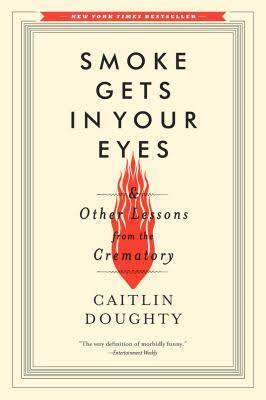
Ever since I ran my fingers through my mother's cremation remains, just before sending them sailing into the ocean, I've wanted to know what happened to her body in the gap between the moment I kissed her still-warm face goodbye in the ICU and her transformation into emulsified bone matter. Although I'm not in any rush for it and I really loathe losing anyone I love, I am not turned off by death. It's inevitable and I'm very curious. I realize this is an idiosyncratic thing, but I've found that when someone I love dies, I instantly distinguish the dead body as an object quite different from the being who moments ago inhabited it and lose interest in the container; to my senses, it's suddenly like a well-worn shirt. I also rather enjoy the Buddhist exercise of imagining my own disintegration. So I dove into Caitlin Doughty's book, appreciating it for the treasure that it is: answers! Read More
 I just read a wonderful
I just read a wonderful